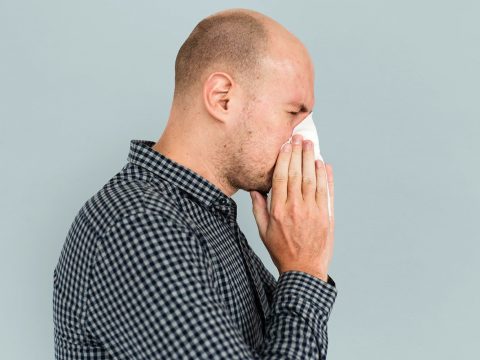- 979-485-9287
- office@bvallergy.com
-
 979-251-7804
979-251-7804
Pollen Allergy

What You Didn’t Know About an Allergist
December 18, 2018
Shortness of Breath: Causes, Symptoms, and Treatments
January 7, 2019What Is Pollen Allergy?
Did you know that more than 25 million people in America, both children, and adults, are affected by allergic rhinitis or what others sometimes called hay fever? That means that during spring, summer, or fall countless Americans suffer from allergy symptoms due to exposure to trees, grass, and weeds. This is all directly caused by how plants release pollens.
Pollen is a fine, powdery substance consisting of microscopic grains discharged from trees, grass, and weeds. This is transported from plant to plant by the wind, birds, insects, or other animals. This substance is one of the most common triggers of pollen allergy or usually prefer as “seasonal allergies.”
What are the Different Types of Pollen Allergies?
There are a lot of plants that produce and release pollen into the air, light enough to travel through the air, and being exposed to some of these plant species might trigger some allergic reactions. Here are five different types of pollen allergies:
- Oak Pollen Allergy – considered to be mildly allergenic compared to other trees. This can cause a severe allergic reaction to some people with pollen allergies since it stays in the air for a long period of time.
- Birch Pollen Allergy – the most common airborne allergens during the spring. It produces a certain fresh that can trigger allergic reactions in people with birch tree pollen allergies.
- Pine Pollen Allergy – the super-fine yellow dust you see on your car in the morning is tree pollen or pine pollen to be exact. Pine pollen allergy gives you a problem when the trees reproduce in the springtime.
- Grass Pollen Allergy – the primary trigger of pollen allergies during summer months. It causes some of the most difficult to treat symptoms. But, allergy shots and tablets can be highly effective in relieving symptoms.
- Ragweed Pollen Allergy – the main culprit of allergies among weed pollens and the most active pollen between late spring and fall months.
What are the Pollen Allergy Symptoms?
How do you know if you’re allergic to pollen? You will know if you have an allergic reaction to pollen when you’ve experienced these pollen allergy symptoms:
- Watery eyes
- Sneezing
- Cough
- Itchy and runny nose
- Swollen eyelids
- Nasal congestion
- Wheezing
- Itchy throat and eyes
- Sinus pressure
What are the Pollen Allergy Treatments?
There are a lot of ways for pollen allergy treatment. One quick way is to purchase over-the-counter and prescription medicines to help reduce its symptoms. Here are the best over-the-counter medication for pollen allergies your allergist may prescribe:
- Nasal Steroids– these drugs are usually the first choice for the treatment of pollen allergy. They help prevent nasal itching, nasal inflammation, and runny nose. These drugs are safe and are effective for most people.
- Antihistamines– these drugs come in different forms. You can buy it in a tablet, liquid, or nasal spray form. This drug will not cure your pollen allergy, however, it will give you much-needed relief from the symptoms you’re experiencing, like nasal congestion or a runny nose.
- Decongestants – these drugs will unclog your stuffy nose. Like antihistamines, you can also buy these drugs in a tablet, liquid, or nasal spray form. Make sure to follow your allergist’s instructions in taking this drug as it can cause problems like increased heart rate and blood pressure.
- Leukotriene Modifier– these tablets are taken to block the action of leukotrienes which causes allergy symptoms. It works by limiting the production of leukotrienes.
- Cromolyn Sodium is an over-the-counter nasal spray that is used several times a day. This medication is inhaled through the nose and must be inhaled three to six times a day to prevent allergy symptoms.
If these drugs do not work, there are other solutions that might help prevent and treat your allergy symptoms. You can try undergoing immunotherapy. It is a long-term treatment that can help prevent or reduce the severity of allergic reactions.
The process involves giving a patient an increasing amount of allergen until the patient’s immune system becomes less reactive or sensitive to that specific allergen. However, make sure to let your doctor know about your current medical conditions to not complicate the process of the treatment.
These medications and treatments are used to treat or prevent allergic reactions. Always make sure to consult an allergist before taking these drugs or undergoing immunotherapy.
Dr. Paul Jantzi, a board-certified allergist and immunologist, provides allergy treatments in Texas with office locations in Bastrop, Brenham, College Station, Columbus, Giddings, and La Grange.
You can contact him at any of the Brazos Valley Allergy & Asthma Clinics for professional allergy, asthma, and immunology services to patients at six locations throughout the Brazos Valley. They provide the best care and affordable antibiotics for patients.
REFERENCES:
Asthma and Allergy Foundation of America
American College of Allergy, Asthma, and Immunology
WebMD
Mayo Clinic




